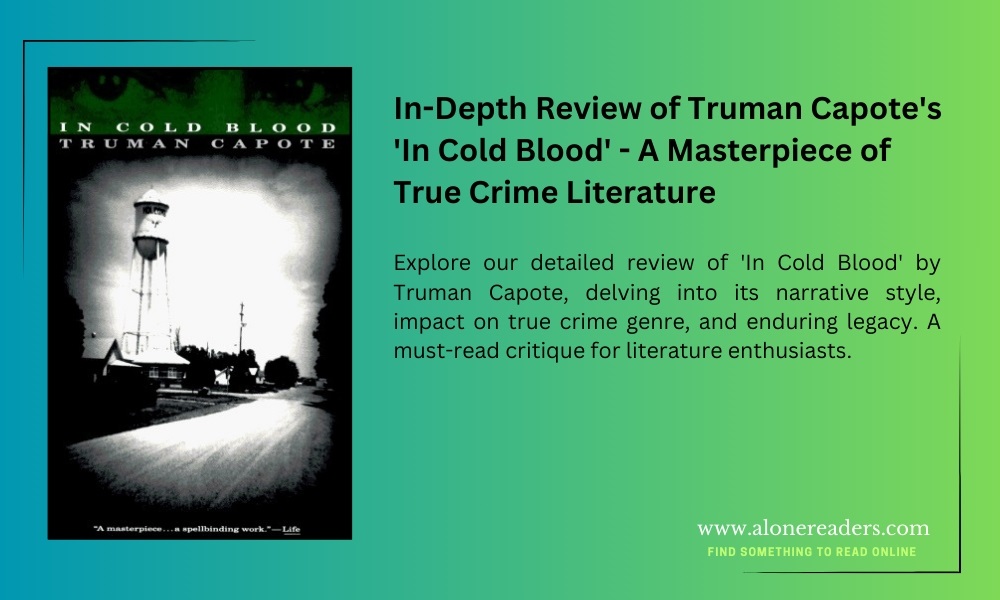
In Truman Capote's "In Cold Blood," readers are introduced to a groundbreaking genre of literature that combines journalistic precision with the depth of a novel. This true crime masterpiece, first published in 1966, transcends the boundaries of traditional writing styles, creating a unique and gripping narrative. In this review, we'll explore the various facets of Capote's work, from its meticulous research to its profound impact on literature and society.
Capote's narrative revolves around the brutal murder of the Clutter family in Holcomb, Kansas, in 1959. The story unfolds with a meticulous eye for detail, as Capote reconstructs the lives of both the victims and the murderers, Richard Hickock and Perry Smith. This dual perspective is what sets "In Cold Blood" apart from typical true crime narratives. Capote delves deep into the psyche of the murderers, painting a complex picture of their motivations and backgrounds, while simultaneously honoring the humanity of the victims.
The research process that Capote underwent for this book was exhaustive. He spent six years investigating the case, interviewing locals, and building a relationship with the killers themselves. This commitment to authenticity is palpable throughout the narrative. The reader gets a sense of the deep emotional impact this case had on the small Kansas community, as well as on Capote himself. This immersive approach has been both praised and critiqued, as it blurs the line between fact and fiction, pushing the boundaries of journalistic integrity.
Capote's writing style in "In Cold Blood" is another element that demands attention. His prose is elegant yet accessible, filled with vivid descriptions and nuanced character portrayals. This stylistic choice enhances the narrative's emotional depth, making the story not only a report of a crime but a profound exploration of American society and psychology. Capote's ability to weave factual events into a compelling narrative without losing their factual grounding is a testament to his skill as a writer.
The impact of "In Cold Blood" on the literary world and the true crime genre cannot be overstated. It paved the way for a new form of storytelling, one that allows for a more nuanced exploration of crime, going beyond the who and the how to the more complex question of why. This exploration of the psychological aspects of crime, along with a focus on the societal conditions that foster such acts, has influenced countless authors and filmmakers.
However, the book is not without its controversies. Questions about the accuracy of some details and Capote's own involvement with the murderers have sparked debates about the ethics of his approach. These discussions add another layer to the book's significance, prompting readers to ponder the responsibilities of a journalist and the limits of storytelling.
In conclusion, Truman Capote's "In Cold Blood" is more than just a recounting of a grisly crime; it is a profound commentary on the human condition. Through his innovative narrative structure, meticulous research, and elegant prose, Capote not only tells a story but also raises important questions about truth, ethics, and the nature of evil. Its legacy endures not only as a pioneering work in the true crime genre but also as a significant piece of American literature that continues to captivate and challenge readers to this day.